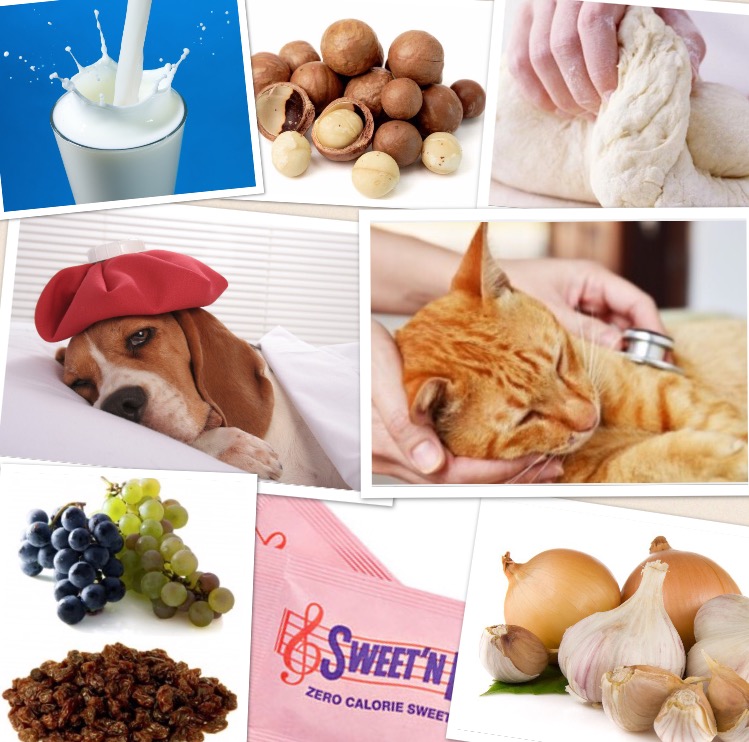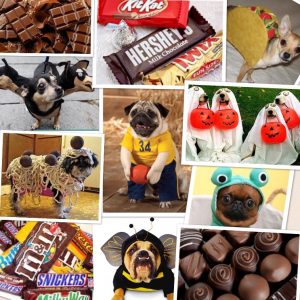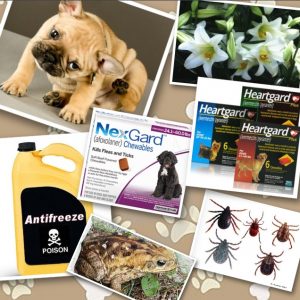
What Human Foods Are Dangerous For My Pet?
Hi everyone. I get MANY calls at the animal hospital inquiring if certain human foods are dangerous or toxic for pets. The other day, for instance, a client called me in a state of panic that their pet ate parsley and concerned it may be toxic. Fortunately, parsley is not toxic, but then I had to follow-up with a question; How did you get your dog to eat parsley? With Thanksgiving around the corner, and common emergencies around this time of year with human food ingestions, I thought it would take a moment to list all the foods your pet should NEVER eat.
So what human foods should my pet never eat?
Alcohol
I know! I know! This seems obvious….right? Well you would be surprised how many times I have seen this alcohol intoxication on emergency. Most cases are accidents. MOST!! Clinical signs include;
vomiting, diarrhea, decreased coordination, central nervous system depression, difficulty breathing, tremors, abnormal blood acidity, coma and even death. If your pet has ingested alcohol, see or contact your veterinarian immediately.
Onions, Garlic, Chives
I know….who knew? Cats are actually more susceptible to the toxic effects of onions, garlic, and chives, however dogs are also at risk. The toxicity causes a condition called hemolytic anemia, which is characterized by the bursting of red blood cells circulating through your pet’s body. Ingestion can cause less critical side effects such as gastrointestinal irritation. Toxicity is normally diagnosed through history, clinical signs and microscopic confirmation of Heinz bodies.
Citrus
Now do not get worried. In small doses, such as eating the fruit, citrus is not likely to cause major problems beyond a minor stomach ache. Citric acid contained in the stems, leaves, peels, fruit, and seeds of the plants, can cause irritation and possibly even central nervous system depression if ingested in large amounts.
Grapes and Raisins
Although the toxic substance within grapes and raisins is unknown, these fruits can cause kidney failure in dogs. It is best to avoid feeding grapes and raisins to dogs.
Macadamia Nuts
Weakness, depression, vomiting, tremors and hyperthermia are common clinical signs associated with macadamia nut ingestion in dogs. Signs usually appear within 12 hours of ingestion and can last approximately 12 to 48 hours.
Nuts
Nuts, including almonds, pecans, and walnuts, contain high amounts of oils and fats. Foods that are high in oils and fats can cause vomiting and diarrhea, and potentially pancreatitis in pets.
Milk and Dairy
Despite what many people believe, pets do not digest dairy products well. Dogs and cats do not possess significant amounts of lactase (the enzyme that breaks down lactose in milk). Milk and other dairy-based products cause them diarrhea or other digestive upset.
Coconut and Coconut Oil
Similar to citrus acid, when ingested in small amounts, coconut and coconut-based products are not likely to cause serious harm to your pet. The flesh and milk of fresh coconuts do contain oils that may cause stomach upset, loose stools or diarrhea. Coconut water should not be given to your pet because it contains high levels of potassium.
Salt and Salty Snack Foods
Large amounts of salt can produce excessive thirst and urination, or even sodium ion poisoning in pets. Salt toxicity clinical signs include; vomiting, diarrhea, depression, tremors, elevated body temperature, seizures and even death. Please avoid giving your pets all foods that are high in salts such as potato chips pretzels, etc.
Xylitol
Xylitol is used as a sweetener in many products, including gum, candy, baked goods and toothpaste. Xylitol can cause insulin release, which can lead to liver failure. The increase in insulin can cause low sugar levels in the blood stream which can lead to liver failure. Clinical signs of toxicity include vomiting, lethargy and loss of coordination and can progress to seizures.
Chocolate, Coffee and Caffeine
As discussed a few weeks ago in my blog, chocolate toxicity in pets, chocolate contains two ingredients that are toxic in large quantities: theobromide and caffeine. Different types of chocolate contain different amounts of theobromide and caffeine; therefore, the amount and the type of chocolate your pet eats play a role in its toxic effects. Darker chocolate is more dangerous than milk chocolate. White chocolate has the lowest level of theobromide, while baking chocolate contains the highest. Clinical signs of chocolate ingestion include; diarrhea/vomiting from the high-fat content in the chocolate, restlessness, hyperactivity, muscle twitching, tremors, increased drinking and urination, excessive panting, irritability, increased heart rate and abnormal heart rhythm
Raw/Undercooked Meat, Eggs and Bones
Raw meat and raw eggs can contain bacteria such as Salmonella and E. coli that can be harmful to pets and humans. Pets can choke on bones, or sustain injury should the bone splinter and become lodged in or puncture your pet’s digestive tract.
Yeast Dough
I have seem this emergency a few times. When pets digest raw yeast dough, the dough can expand and rise in the GI tract, causing gas to accumulate. This can be painful and can cause the stomach to bloat, and potentially twist, becoming a life threatening emergency. In addition, the yeast produces ethanol as a by-product and a dog ingesting raw bread dough can become drunk (See alcohol).
I am so excited for the holidays and love all the amazing food, family, friends, and fun. Unfortunately this is a time of year that I do see many pet emergencies. I hope these tips help to keep your pet safe and healthy during this time of year! Keeping our pets safe and healthy is always my top priority, and secondarily keeping the stress down during the holidays and preventing unnecessary trips to your veterinarian. Have a great weekend everyone!




